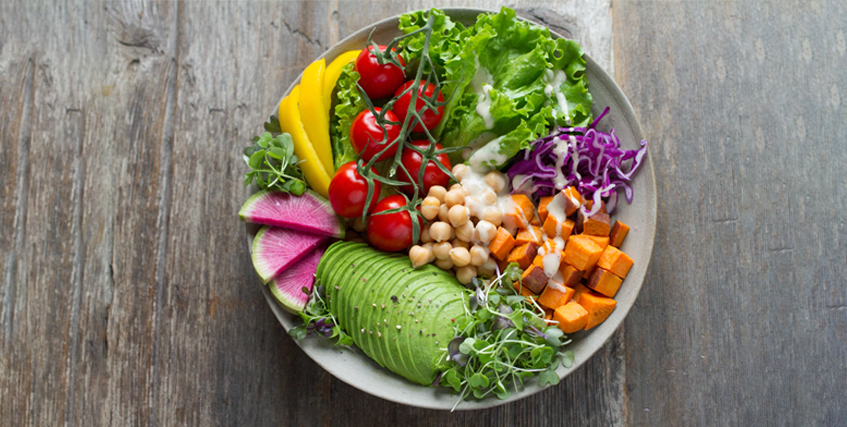It has been well documented that increasing plant based foods in your diet is beneficial for both your health and the environment. Including more foods such as fruit, vegetables, beans, legumes, nuts and seeds has been shown to positively impact your health, whether you are vegetarian or not.
While it is absolutely possible for an athlete to be successful while following a vegetarian diet, there are a few considerations that need to be taken into account when planning the diet.
Protein
Protein is a macronutrient that is important for building and repairing muscle. We need to consume protein every day, as our body cannot store it, the way that it can for fat and carbohydrates.
In order to maximise your muscle building capacity, it is recommended that protein is consumed at 4 different intervals across the day; about 20-25g in each of those 4 meals or snacks. Animal sources of protein contain all of the essential amino acids (our bodies cannot produce them), where plant sources are often missing one or two of these. Therefore, it is really important to get a mix of plant based protein sources each day, to ensure that you are maintaining or building your muscle mass effectively.
Some great vegetarian sources of protein include Greek yoghurt, eggs, beans, legumes and tofu. There are many other foods that will contribute small amount of protein throughout the day (eg. grains and cereals), and these are also important to consider when planning a vegetarian diet for an athlete.
Iron
It is crucial for athletes to be consuming adequate iron, as it is used to transport oxygen to the muscles. A diet low in iron can result in headaches, low energy levels, irritability, dizziness and anaemia.
There are 2 types of iron in food: haem and non-haem. Haem iron comes from animal foods and is absorbed 3 times better than non-haem iron. Vegetarian athletes need to be careful to include high iron foods in their diet such as legumes, fortified cereals, nuts and seeds and green leafy vegetables.
As with all every athletes’ nutrition, adequate energy intake and a balance of the 3 macronutrients (protein, carbohydrates and fat), based around their goals and preferences is key. While it may be a little more challenging, all of these criteria can be met when following a vegetarian diet.

